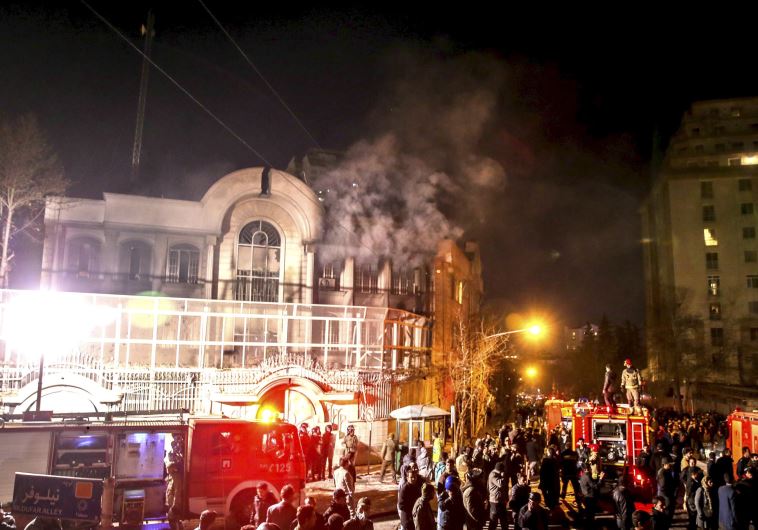Dilpomacy: The nutty neighborhood that just got crazier
Saudi Arabia vs Iran, Islamic State and the Muslim Brotherhood, Islamic Jihad watching Hamas, three parts of Syria and what it all means for Israel.
 Flames rise from Saudi Arabia's embassy during a demonstration in Tehran January 2, 2016Updated:
Flames rise from Saudi Arabia's embassy during a demonstration in Tehran January 2, 2016Updated: